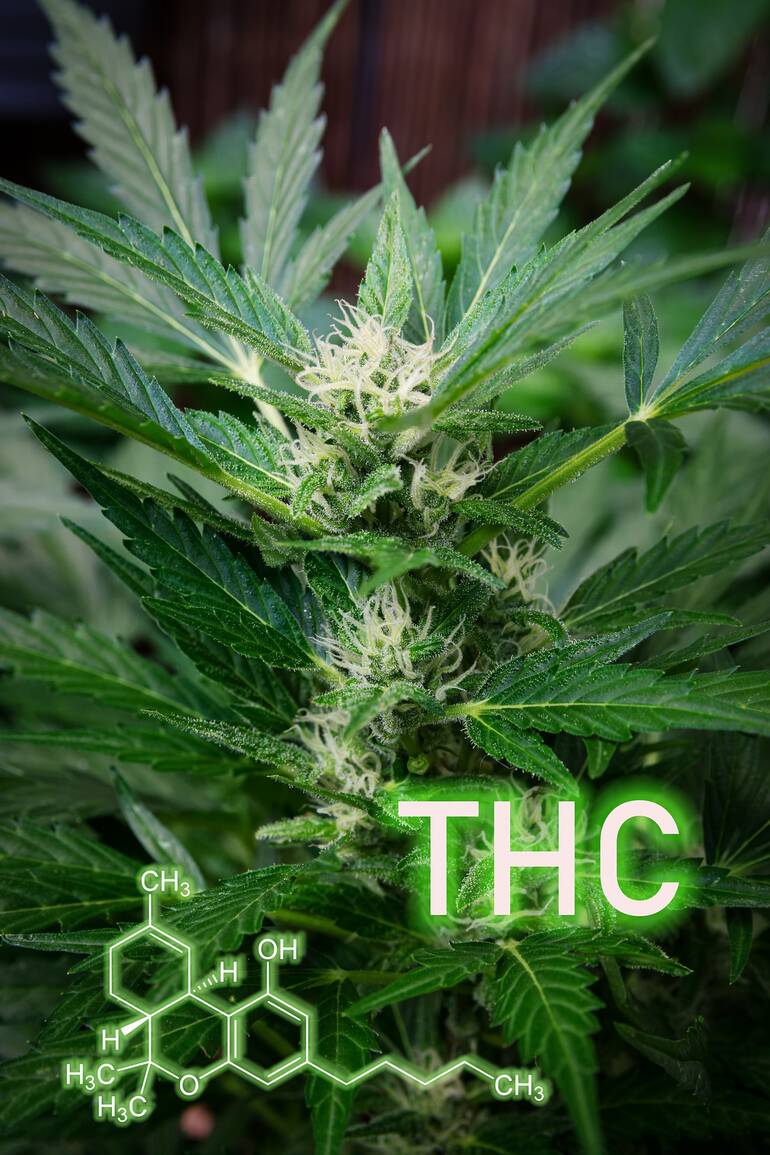Start 14-Day Trial Subscription
*No credit card required

The Lesser-Known Effects of THC on the Brain and Body
The fact that THC has an effect on the brain and body is well documented, however, the true range of these effects isn't quite as well understood.
Largely, we know that THC is psychoactive, which is true, and it is the cannabinoid predominantly responsible for making consumers feel high. This only serves to scratch the surface in terms of the diverse effects of THC.
Potent cannabis is extremely popular within the modern legal marijuana market, with growers generally opting for high THC seeds to cultivate and consumers springing for the most potent strains available, so it is important to explain why THC is not simply a means to an end for getting extremely high. That’s not to say that getting high is not an obvious benefit of THC but to suggest that is all this cannabinoid does is a bit of a disservice.
So, we will look at some less-explored effects of THC here today and hopefully offer some insight into this complex compound and why it is so special.
THC in small doses may help your brain fight aging
Naturally, our brains begin to slow down as we age, this is a natural process of aging, one often thought somewhat inevitable. However, a study carried out on mice by the University of Bonn and Hebrew University actually found that THC in small doses helped older brains perform better. This supports the general feeling that THC can have a positive effect on the brain if taken in small doses.
While we aren’t medical officials, we trust the research carried out on the effects of THC, however, we would say that further research into the exact levels of THC in store-bought weed needs a little more defining.
Perhaps the best way to control your THC intake is by growing your own weed. For example, by growing something with an average THC content around 24% like Tangerine Dream seeds you can test the THC content, possibly control it and definitely be aware of everything that has gone into the weed that might affect this.
THC can boost appetite
The appetite-boosting effects of THC and cannabis, in general, are widely known, they even have their own neologism; ‘the munchies’, but rarely are they viewed in such a positive way by the public as a whole. THC’s ability to stimulate appetite can be exceptionally beneficial for those receiving medical treatment with side effects that dull hunger significantly, these types of treatments are common, therefore providing a positive twist on the normally comedic ‘munchies’ phenomenon.
THC is an antioxidant
All cannabinoids are pretty potent antioxidants. This facet of THC is largely why it is considered a great anti-aging and anti-stress remedy. Oxidative stress is a pretty big but largely unnoticed problem for the human body and brain. Most modern, artificial light causes oxidative stress, as do many common chemicals that we consume knowingly and unknowingly on a daily basis.
Again, it’s probably best to grow your own weed for this one. For example, growing your own Mac 1 seeds, or whatever strain you choose, allows you to closely monitor THC levels. Furthermore, growing your own weed is far more cost-effective and you end up with more weed to create concentrates from.



